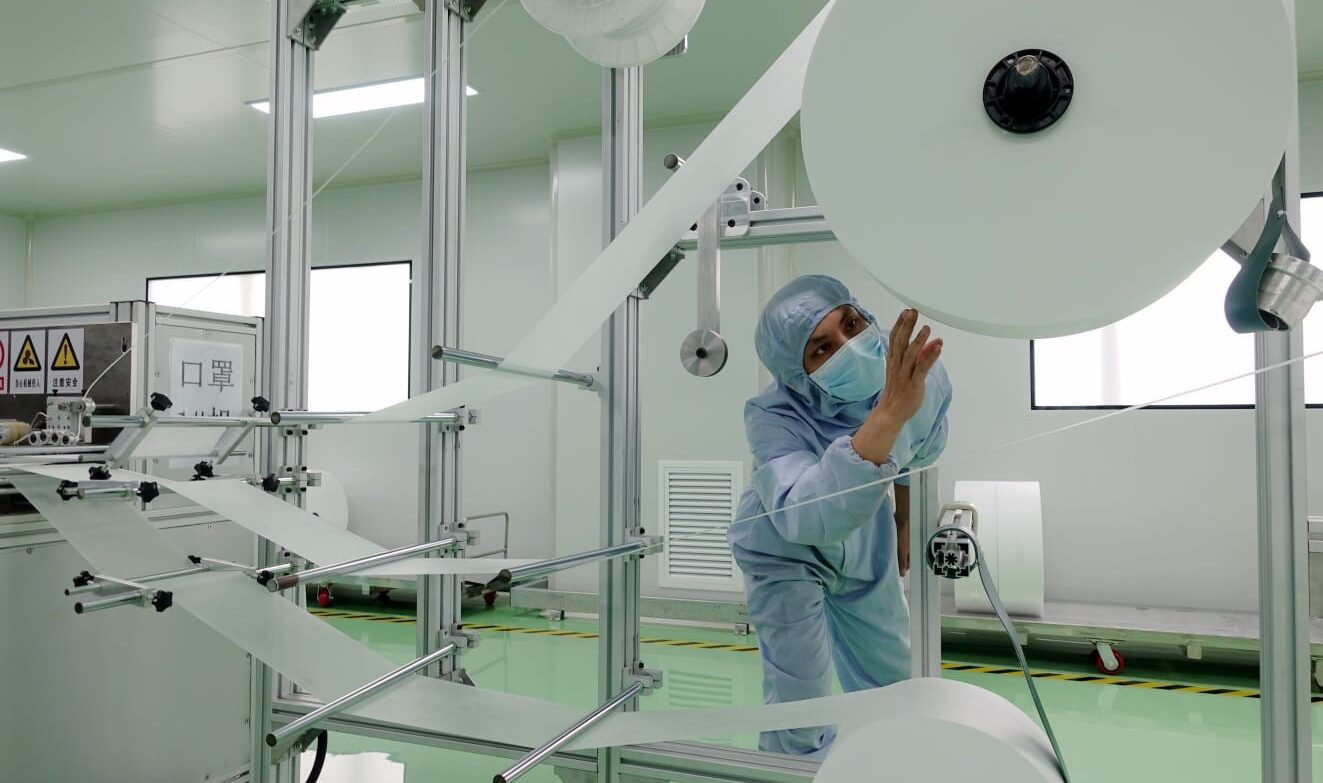Combatting COVID-19: our USD1 billion commitment


Since Standard Chartered committed USD1 billion of non-for-profit financing for companies helping in the global fight against COVID-19, we’ve seen companies step forward right across Asia, Africa and the Middle East.
Some are looking to ramp up their existing manufacturing of personal protective equipment (PPE), and some are rejigging entire production lines.
As these companies shore up their talent and resources to counter the pandemic, we are here to help.
Vinda Household Paper (China) Limited – a leading hygiene product company based in China – has been provided with a USD23 million facility from Standard Chartered, making it the first company in Asia to take advantage of our USD1 billion financing commitment.
The company will use the funds to support new face mask production lines at its existing manufacturing facilities in Zhejiang and Guangdong, enabling production of up to 7 million masks every month. This will help meet the growing demand for personal protection equipment in China and further afield.
Vinda produces several well-known tissue brands and personal care products and has a strong sustainability track record: it was the first FMCG company in Hong Kong to secure a green loan in accordance with the ‘Green Finance Pre-Issuance Stage Certificate’ issued by the Hong Kong Quality Assurance Agency and focuses on pulp that is certified or comes from responsible sources.
Joint Medical Store – a Uganda-based NGO that engages in the import, export and wholesale of medicines and health supplies – was the first institution to take advantage of our financing to provide much-needed PPE to front-line health workers at a lower cost.
“We have been supplying the government, NGOs, and the private sector in Uganda with medical supplies for over 40 years. However, COVID-19 has increased the urgency for provision of medical supplies,” says Bildard Baguma, Executive Director of Joint Medical Store.
“The USD2.2 million facility provided by Standard Chartered will enable us to respond to this urgent need to provide front-line health workers with high-quality PPE which is integral to maintaining health and safety during the pandemic. We will also be providing critical care equipment to hospital intensive care units.”
Mr Baguma also said the rates provided by Standard Chartered will help the company pass on lower costs of PPE and critical care equipment to clients.
“COVID-19 has disrupted and stressed the supply chain. This facility will go a long way in enabling us to meet the high and urgent demand for PPE,” he added.
Commenting on our commitment, Simon Cooper, CEO of Corporate & Institutional Banking, said: “Our priority is to help get the right products and services to the front line in the most timely fashion, and the Joint Medical Store facility is the first of several that are close to fruition. Africa is a very important part of our Group strategy and I’m particularly pleased that we’re able to use our network there – on a continent where in many cases we are one of very few global banks – to make an impact in the fight against COVID-19.”
So far, we have screened financing requests ranging from USD500,000 to USD50 million. Our aim is to help a mix of companies both in size and type of operations to achieve the maximum impact possible.
Companies in scope include all those associated with helping to tackle COVID-19, including manufacturers and distributors in the pharmaceutical industry and healthcare providers, as well as non-medical companies that have volunteered to add this capability to their manufacturing output – goods in scope include ventilators, face masks, protective equipment, sanitisers and other consumables.
All financing will be subject to companies having received regulatory approvals to manufacture the goods.
We will continue to serve all of our clients – from small businesses to large multinationals – during this unprecedented challenge.